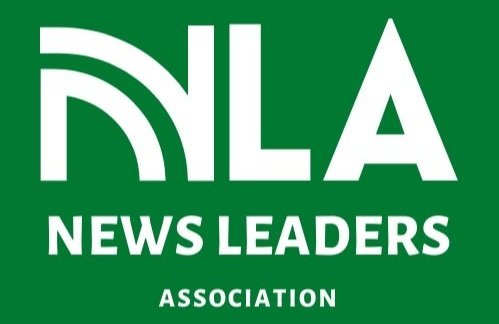No Choice but to “Hold the Line”
By: Mary Eber
For a century, journalists have been the distributors of news as well as gatekeepers of facts and truth but these days a global campaign of disinformation and a growing dependency on social media to get the news out may be crippling the industry and eroding public trust.
Social media platforms have become the world’s largest distributor of news, but the gatekeeping roles are being left behind, said Maria Ressa, CEO and executive editor of Rappler.com the largest journalist-controlled media corporation in the Philippines.
Ressa gave the keynote remarks Monday at the annual News Leaders Conference in New Orleans. An outspoken critic of Philippines President Duterte, Ressa has been arrested twice this year and accused of ‘cyber libel,’ violating security laws and corporate tax laws.
“Obviously these cases are political, politically motivated. It is harassment that's aimed to both deplete our resources and one of those biggest resources is time,” she said. “So I look at it as a waste of time, but at the same time we hold the line.”
Ressa thinks it’s important for the Philippine government to have “a veneer of law and order” as she goes through the court processes.
“I'm hoping that there are enough men and women in the judiciary in the Philippines who will hold fast to the spirit of the law and not bow to power,” Ressa said.
She continues to push on, why? Because it matters, she said.
A little company like Rappler can hold the line. Without it’s journalists, the Philippines would be significantly different, Ressa said.
“Democracy is under attack,” she said. “It's an existential moment and we must act to save it otherwise, your generation, democracy as we know it will be dead.”
She referred to social media as the “frenemy” right now. Journalists should use it because it’s there and it’s necessary to distribute information, but it’s chaotic. The landscape of the old world is destroyed, which Ressa said is the most exciting part for new journalists entering the field.
“We're in the active part of creating what the new world, what today, will look like, and so everything you do will matter,” she said.
Part of the problem globally and part of the reason you see populist style leaders elected is because the gatekeeping role of journalists has been left behind. We need to go back to the basics, the principles and values that newsgroups and journalists stand for and work to clean up the “information ecosystem,” she said.
The only way to do this is to keep doing our jobs to shine the light, Ressa said.
“We have to restore facts, because without facts, you can't have truth. Without truth. You don't have trust. And without these three, you don't have a democracy. So the first line of defense in a democracy is what I would say for today,” she said.
Ressa saw speaking at NLA as an opportunity because the problem in the Philippines is America’s problem.
“The beginning of the end of democracy was brought, enabled by technology, American social media platforms, and I continue to appeal to them to do something about this,” she said. “That the cost of their profits are too high for our societies to absorb.”
The journalists at Rappler have learned to deal with a lot of these things and tactics that are coming to American soon, if they’re not already here, she said.
Maria Ressa Interview
Mary Eber is a senior at Ball State University in Muncie, IN, majoring in Journalism and Telecommunications. She graduates in December 2019 and can be reached at maryebernews@gmail.com
Photographer, Eric Pritchett is a senior at Ball State University in Muncie, IN, majoring in Photojournalism and minoring in scuba. He graduates in December 2019 and can be reached at empritchett@bsu.edu or on his website http://ericpritchett.com/




